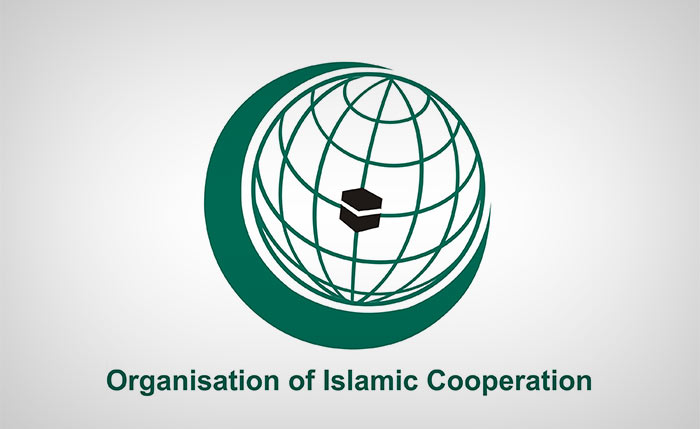OIC voices concern over attacks against Muslims in Sri Lanka

The Organization of Islamic Cooperation (OIC) has expressed deep concern over the tense situation in Sri Lanka after a mosque, several hotels and vehicles owned by Muslims were vandalized by mobs in the town of Ampara, the Saudi Press Agency reported.
While expressing its concern over the highly explosive situation in the island nation, the OIC stressed the need to protect the rights of the Muslim minority, foremost of which is the sanctity of places of worship. It said Muslims should be able to perform their religious duties without fear or harassment and there should not be any direct or indirect attacks.
The OIC also said Muslims should have the freedom to earn their livelihoods and conduct business under the full protection of the law.
The OIC secretary-general called on the government of Sri Lanka to proceed expeditiously with an investigation of such abuses and to ensure the safety and security of the Muslim minority while practicing their religious rights in accordance with all relevant international human rights conventions and instruments.
Meanwhile, an OIC delegation is visiting southern Thailand to assess the efforts of the Thai government to improve the plight of Muslims in the country. The visit was in line with a resolution of the OIC Council of Foreign Ministers. The delegation comprised ambassadors and representatives from Bahrain, Gambia, Indonesia, Jordan, Malaysia, Pakistan, Turkey and the OIC General Secretariat, SPA said.
The delegation visited Sai Buri district in Pattani province on Feb. 27 where the commander of the region Lt. Gen. Piyawat Nakwanich briefed it on the projects implemented by the government for Muslim communities under the “Bring People Home Project” and their impact on the people.
The OIC delegation proceeded to Yala province where it was received by the secretary-general of the Southern Border Provinces Administrative Center (SBPAC). The delegation held constructive talks with key officials regarding the educational and social programs being organized in the region.
The delegation welcomed these developments as a positive step and expressed the willingness of the OIC to contribute to the process of confidence building, dialogue and economic development in the region with the support of various OIC organs. The delegation reiterated the position of the OIC to support all peaceful initiatives that guaranteed the human rights of citizens and developed mutual understanding, coexistence and cooperation for the benefit of all communities in Thailand.
The delegation called upon the authorities to continue to take measures that would improve the lives of communities living under the emergency law in southern Thailand and ensure that security measures are not disproportionately affecting Muslims of the region.
The delegation encouraged the Thai authorities to accelerate the ongoing process of confidence building measures and to address the root causes of the communal tension through a comprehensive approach based on empowering the population of the southern provinces to assume their roles as full citizens and members of Thai society.
The delegation further welcomed the steps taken by the government of Thailand in cooperation with Malaysia for constructive dialogue with Muslim groups in the south of the country in order to prepare a road map to resolve existing problems.
The delegation reiterated the stance of the OIC that such dialogue should expand and be more inclusive so that other organizations and groups representing Muslims in southern Thailand can participate.
(Source: Saudi Press Agency)

Latest Headlines in Sri Lanka
- Batalanda commission report tabled in Sri Lankan Parliament March 14, 2025
- Female Grama Niladharis withdraw from night duty over security concerns March 14, 2025
- Sri Lanka ranked as the best country for settling down March 14, 2025
- UN pledges support for Sri Lanka’s industrial and SME development March 13, 2025
- Former Boossa Prison Superintendent shot dead in Akmeemana March 13, 2025



OIC ought to get facts right before publishing inaccurate reports. Historically muslim migration was associated with the spice trade. Ceylon with clove, cinnamon, nutmeg and cardamom is most likely native to ceylon for there is no evidence of it being commercially cultivated. These spices were much sought after and Magellan ran several expeditions to the east in search of these spices and eventually died in the process while carrying a cargo of cloves. This was probably in the 16th century. Arab expeditions probably followed soon after and probably responsible for starting tarding posts on Ceylon and eventual colonisation.
When the British lost its colonial grip in Ceylon in 1948 the muslims were referred to as hambayas and was described as minority representing less than 5 perecnt of the population. From the astern eas board the muslims moved to the central highlands and Akurana in Matale was their bastion.
According to a report published by the Department of Census and statistics the population of Ampara in 1963 stood at 211,000 46 percent of which were muslim. the population in 2007 increased to 610,00 (289%), Between 1063 and 2007. In 2001 sinhala population reached a maximum of 236,000 that went down to 228,000 9n 2000. During the corresponding period the muslim population increased from 244,000 t0 268,000,
Accordong to the same report of the 19 divisions in Ampara 10 administrative divsions accpmodate less than 1 percent sinhalese, 5 of these divisions are dominate by tamils. The demography undoubted would ahve gone through changes since the tamil terrorr.
In ampara muslim population exceeds th sinhala population for the sinhalese to be a threat. If at all it is the other way about considring the sinhalese are non violent culturally, however if there is provocation then they can be just as violent. An events in the past has been promoted to achieve political ends and this trend in recent times has escalated.
the real problem is the cultural values between the communitie and until some such time the communities can find a common ground should strive tve to exusr peacefully. Cultural isolation is no solution to the problem